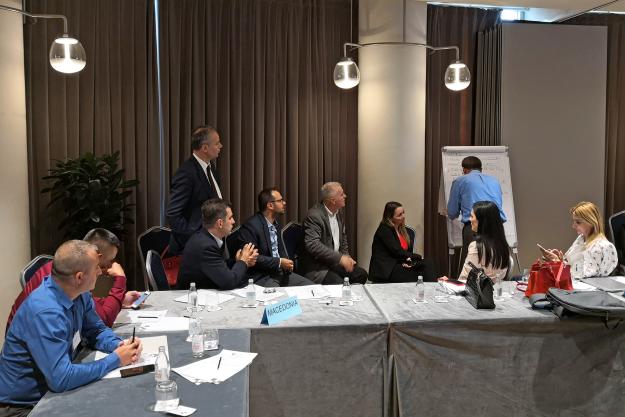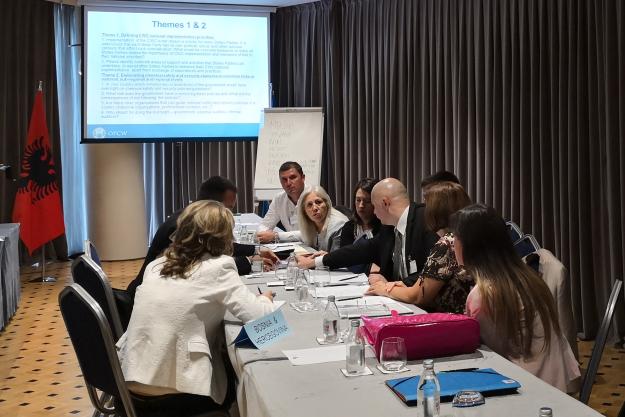THE HAGUE, Netherlands — 15 October 2018 — State officials from five Western Balkan countries agreed to step up cooperation to strengthen the implementation of the Chemical Weapons Convention (CWC), during the sub-regional forum held in Tirana, Albania, from 2–4 October 2018
In his opening remarks, Programme Officer in the Implementation Support Branch of the Organisation for the Prohibition of Chemical Weapons (OPCW), Mr Vaclovas Semaskevicius, underlined that all participating countries had already adopted domestic legislation to implement the Chemical Weapons Convention and were now ready for ”a more robust enforcement of the legal provisions, particularly through international cooperation”.

Strengthening the implementation of the Convention
Participants met to develop a model blueprint of sub-regional collaboration on CWC matters
Topics of particular interest during the forum included: cross-border cooperation in controlling the transfer of toxic chemicals, safety and security measures in chemical facilities to minimise risks of chemical emergencies, and protocols in response to chemical incidents.
The participants developed a model blueprint of sub-regional collaboration on CWC matters, which identified government agencies and other stakeholders, as well as actions required to ensure the full implementation of the Convention.

State officials from five Western Balkan countries meet to strengthen the implementation of the Chemical Weapons Convention
The event was attended by 30 experts from CWC National Authorities, customs authorities, national defence and security, as well state agencies in charge of chemical safety and security matters from Albania, Bosnia and Herzegovina, the former Yugoslav Republic of Macedonia, Montenegro, and Serbia.
Background
As the implementing body for the Chemical Weapons Convention, the OPCW, with its 193 Member States, oversees the global endeavour to permanently eliminate chemical weapons. Since the Convention’s entry into force in 1997, it is the most successful disarmament treaty eliminating an entire class of weapons of mass destruction.
Over 96% of all chemical weapon stockpiles declared by possessor States have been destroyed under OPCW verification. For its extensive efforts in eliminating chemical weapons, the OPCW received the 2013 Nobel Peace Prize.
